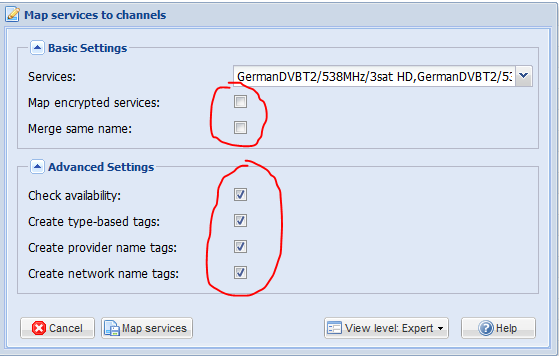Hi,
It’s been a while since we announced any progress re. DVB on Vero 4K. As always, things take longer than they should. We’ve now added support for many more DVB devices.
To test the latest improvements:
- Login via the command line
- Edit the file
/etc/apt/sources.list
- Add the following line:
deb http://apt.osmc.tv stretch-devel main
- Run the following commands to update:
sudo apt-get update && sudo apt-get dist-upgrade && reboot
- Your system should have have received the update.
Please see if the issue is resolved.
I also recommend you edit /etc/apt/sources.list again and remove the line that you added after updating. This will return you to the normal update channel.
Cheers
Sam
 Will give it a try during the next days.
Will give it a try during the next days.
Did you make a new hardware version of the Vero 4K?
No, this is second iteration of DVB improvements.
1 Like
I tried this version with the DVBSky S960 (DVB-S2 Tuner). (should work with media_build)
The tuner still is not recognized as such…
dmesg | grep -i dvb
doesn’t give any result.
Is the media_build fully supported now? or is it possible that this adapter’s kernel isn’t in it yet?
Yes — media build is now fully supported. I’m not sure of which specific adapters will be covered
Sam
No joy with my MyGica DVB-T2 tuner stick, not even recognised by the Vero. Works perfectly on an LE Pi.
I also have a PCTV Systems DVB-T2 292e nanoStick (which I do not recommend as it does not have a full-size aerial connector, and the adaptor can be a pain), and the Vero does not see that either.
Confirmed. August T210 (aka MyGica) also does not work.
I can confirm that. But there is progress…
Will give it a try with the original OSMC stick either tomorrow or on Monday and let you know.
Meanwhile, what exactly is meant by the frequently mentioned “media_build”. Someone to explain what it is (technically) about?
It’s the source code for V4L2 (video for linux). I think it’s ‘built in’ to the RPi kernels OSMC uses, but the Vero4k kernel is so old, Sam has to backport a load of drivers.
AFAICT he is bringing a limited set of drivers into the backport to avoid bloat. So you may need to vote for your particular stick 
I’d rather vote for certain devices like the Silicon Labs Si2168-40 and Silicon Labs Si2157-30 (demodulator and tuner) instead of sticks. Those devices can be found in many sticks and would thus benefit a lot of users. Fun fact: that was my original motivation to buy the PCTV 292e in the first place as its components are among the (usually) best supported on Linux…
FWIW, the OSMC stick is working fine now here in UK. There seem to be some issues with German HD signals, though.
Yep, I hope @AndreasK can confirm that it’s now working in Germany as well (with the latest improvements, i.e. 3.14.29-96-osmc).
That’s not how the drivers work, though. They go from the vendor and product ID primarily.
And we can’t expect the average user to go ferreting about to find what chips are in the stick s/he’s just bought.
Hm, I thought this would affect the USB interface only (which is now recognized for the PCTV 292e) since e.g. the demodulator driver itself is independent, but you might be right as it will be called by the stick’s driver. OTOH, even the USB interface class in question here (Empia em28xx) is used on various devices so I presume that vendor and device IDs might be rather loosely coupled with actual brand and product names.
That’s the part I don’t really get: the USB interface is now supported, at least its core. But its DVB part should then invoke the demodulator/tuner drivers if they’re got backported as well. I guess I need to take a look at the 3.14.29-96-osmc source tree to find the gap.
Update: the Vero 4k media_build tree is still not fully up to date such that the em28xx driver still lacks the Si2168/Si2157 support (and those drivers themselves) available upstream.
And we can’t expect the average user to go ferreting about to find what chips are in the stick s/he’s just bought.
The point I was trying to make is that I wanted to increase general DVB stick support with the least amount of effort for you guys, instead of focusing on single sticks. So we share the same goal  .
.
1 Like
We should be able to support most sticks up to Linux 4.9
Sam
For those interested in German DVB-T2 with the Vero4k and the OSMC stick, just an ad-hoc configuration help, only the manual steps
- make the Panasonic MN88473 #0 : DVB-T #1 the active tuner, disable “initial scan”
- create a new “DVB-T” network and chose “–Generic–: auto-Default” template, “network discovery” is “new muxes + changed muxes”
- in the Panasonic MN88473 #0 : DVB-T #1 tuner select the new network +save
- select all new muxes and do a bulk edit like this, change the red marked fields
- select the new network in the Network menu and start a Forced Scan
- when all muxes are idle again, go to the services menu, and start a “Map all services” with these settings

That’s it.
1 Like
 Will give it a try during the next days.
Will give it a try during the next days.